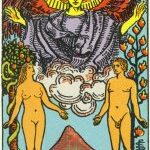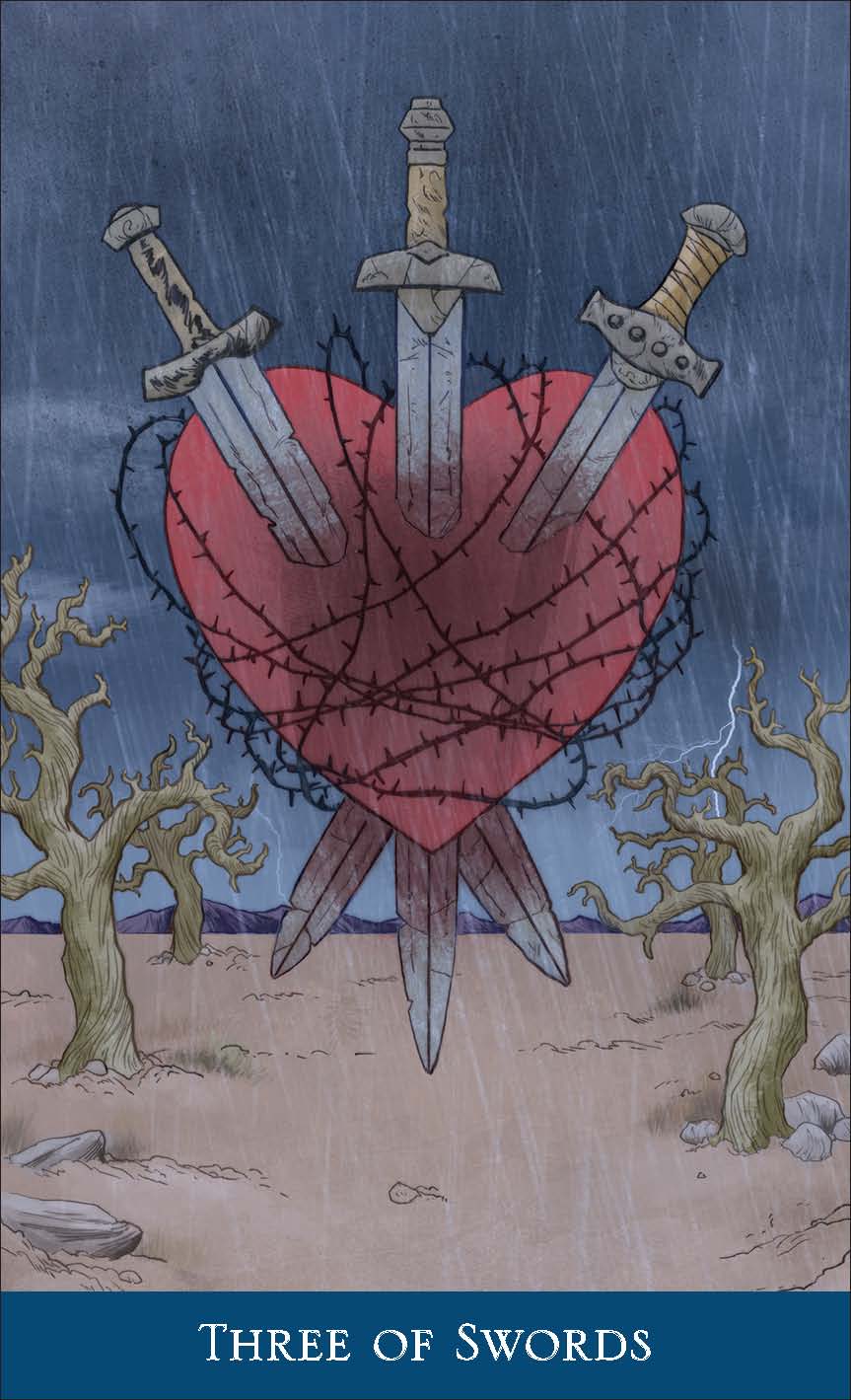
by Barbara Moore
(Article originally published in The Llewellyn Journal.)
Valentine’s Day is approaching, so naturally our minds turn to love, romance, and fun. Using tarot for love is not unique; in fact, love is probably the most asked about topic in readings (closely followed by questions about money/career). Finding spreads for almost any aspect of love is as easy as typing “tarot spreads love” into Google. Traditional readings are a tried and true method of using the cards to get advice about relationships, but there are other ways of using the cards. Below are three.
- Date Idea Generator
On Valentine’s Day, so many people feel the pressure to do something wonderfully romantic to show their person how much they are loved. So many times, though, we default to dinner at a fancy restaurant and a movie. The cards can be used to brainstorm creative ideas for Valentine’s Day dates (or for any kind of date, for that matter). Simply pull a card, forget all about prescribed meanings, let your eyes and mind take in the symbols, write down your associations, and then turn those associations into meanings. Depending on the deck that you use and how accustomed you are to brainstorming, you could get a ton of ideas. But if you are new to this technique, try to come up with at least three to start. After all, all you need is one, if it is a good one. The key to brainstorming is to come up with as many ideas as possible, without editing yourself, and then narrow down the ideas to the ones that you really love.
For this example, I (ironically enough) drew the 3 of Swords (using the Llewellyn Classic Tarot). This card traditionally has very simple images, so it’s a pretty good example. Let’s see how I do. I’ll set a timer for three minutes.

Swords: knives, cooking, cutlery
Swords: weaponry, medieval themes, fencing
Trees: bonsai, arboretum
Barbed wire: metal working, graffiti
Rain: water, water park, singing in the rain, tragic love stories
Pierced heart: star-crossed lovers
Sandy ground: zen garden, sand boxes, play grounds, clay, sculpture
Using those associations, I look for themes or ideas that can be fleshed out into a cool date idea. Here are some that I came up with:
- A cooking class, particularly one that focuses on knife skills.
- A fencing class.
- A community theater production of Romeo and Juliet.
- Visit a Japanese Garden and a meal at a restaurant showcasing bento box meals or make-your-own bento boxes.
- Visit a water park (indoors, if necessary, or outdoors if you are lucky enough to live in a warm place).
- Visit a museum or studio that features urban art.
- A workshop or class for making sculpture (clay or metal).
- If you live in a cold area, a conservatory makes a great escape to warmth and lush greenery.
- A meditation class could be the perfect foil to normally hectic schedules.
- A class or workshop or lecture about the art of bonsai.
So, you see, even with the very unromantic 3 of Swords and about fifteen minutes, I have ten unique ideas.
- Fostering Communication, 1
Even though this month is often (and sometimes annoyingly so) about celebrating romance, if your relationship is facing a bumpy patch perhaps the best gift you can give it is some TLC. So many times, issues in a relationship have to do with problems in communication, and tarot can be really useful in that area.
If your partner is up for it, you can work with the cards together. This works well if each person has a deck to use. Each person goes through their deck and selects three cards:
- One to represent the issue under discussion (keep things simple and focus on one specific thing. It is easy and not productive to approach problems by saying, “You ALWAYS” or, “You NEVER”).
- One to represent yourself in terms of the issue.
- One to represent your partner in terms of the issue.
Lay out the cards for each other to see. Then take turns interpreting what you think the other person’s cards are saying (not in terms of traditional tarot meanings but in terms of their experience…so you both don’t have to “know” tarot to do this).
By listening to how the other person sees what you see, you can notice the similarities and differences between their take and what you meant. In this way, you can open a dialogue using an external focus, which can take the emotional, knee-jerk responses down a bit and create some distance and hopefully some curiosity about the other person’s experience.
- Fostering Communication, 2
If your partner isn’t willing to work with you using the cards, you can still get great advice on your own. To do this, you will select most of the cards rather than randomly drawing them.
As in the previous exercise, select a card that represents you, your partner, and the issue.
Using these three cards, imagine seeing the issue through the eyes of the card you selected for yourself, then through the eyes of the card you selected for your partner. If you are used to working with tarot cards, I’d use the court cards to represent you and your partner.
Then, shuffle the rest of the deck and draw two cards, one to represent your blind spot about yourself and your blind spot about your partner. Look at the issue again through the eyes of your card, but this time include your blind spot and try to see what you’ve not seen before. Do the same for the cards you’ve laid out for your partner.
Finally, draw a final card to act as a focus for the advice. Use it to pull together what you’ve discovered using the other five cards. If you’ve been honest and open with yourself as well as compassionate (toward both yourself and your partner), you should find a healthy way to resolve the issue and strengthen your relationship.
Article originally published in The Llewellyn Journal. Copyright Llewellyn Worldwide, 2015. All rights reserved.
